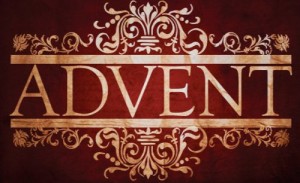In part 1 of this 5-part series, I offered the three encounters that fueled this project:
- This Quote: “The World Vision debacle exposed two severed relationships: the one between the American Church and the LGBT community and the other is between the American Church and itself.”
- This Number: A key facilitator of cross-sector leadership, pointed to the now “10,000 UN-sponsored kids” as the most recent reason why the church is obsolete.
- This Observation: A gay friend pointed out how efficient the “American Church” is at dehumanizing the LGBTQ community by “talking about us as though we’re not in the room.”
The more curious I got with my gay friends, the more I was confronted by the reality of our soiled reputation from the perspective of the LGBTQ community: a reputation that looks and sounds nothing like the Jesus that we claim to follow.
Four questions emerged from our conversations that two of my gay friends committed to interact with as authentically, colorfully, concisely, and constructively as possible. They’ve agreed to let me post their answers because they trust our friendship and they believe, as do I, that what we learn may actually help repair the severed relationship between us.
Let me briefly re-introduce my two friends and then get to the first question.
- Annika is an agnostic lesbian whose passion it is to see an interfaith network of queer and straight people, alongside atheists and agnostics, working together in order to see equitable treatment for all people.
- Constantine is an artist, a theologian, a minister, a follower of Jesus, and a gay man who desires to see the conversations shift from “sexuality” and “marriage” to “identity” and “intimacy.”
Question 1 :: Can you reflect with us on your experience of being a gay, lesbian, or same-sex attracted human being?
Contstantine’s Response:
I’ve been a Christ follower my entire life, and I also identify as a man with same-sex attractions. I’ve always attended church – serving in full-time ministry for nine years – and also work in theatres, galleries and museums. My friends are theologians and addicts, evangelical pastors and gay rights advocates, Sunday school teachers and atheists. In all these environments, the conversation around “the gay issue” reduces me to only a portion of my full self.
Everyone wants to talk about “sexuality” – what I desire to do with whom within which parameters – when I’m more interested in exploring “identity,” the totality of who God created me to be, a portion of which concerns my body.
Marriage, ironically, is a hotly contested topic. Some of my Christian friends uphold it as the most sacred institution, forgetting that Paul encouraged us to do without it if we could, and extolled our relationships within the Church as the exemplar of agape love. Meanwhile, my gay friends fight to obtain equal marriage rights, knowing, though, that a license proves nothing. The dialogue feels inadequate. In the middle again, I want to change the conversation from “marriage” to “intimacy” – how God calls me to know and be known by God, myself, and perhaps a spouse.
I don’t want to settle for anything less than my unique life warrants, and so I keep inviting friends on both sides of the debate into a bigger and better conversation about the identity and intimacy that we all – gay and straight – long for. And that conversation is a lot more complex than anything we have yet faced.
Annika’s Response:
I came out in 2006 after repressing my sexual orientation for many years. On the recommendations of pastors, I sought to “pray-away-the-gay” through reparative therapy and other various spiritual means. These techniques ended up being harmful in that they produced self-hatred, self-loathing and, ultimately, a suicidal longing. As far as I knew, because it had been reinforced by the teachings of my church, G-d hated me.
Since I’ve come out and fully accepted and embraced my sexuality, a weight has lifted and I’ve discovered a freedom that I didn’t know was possible.
As I reflect back on my time with the church, I recognize just how lonely I was. I think my loneliness and feelings of being less than human had something to do with the church’s commitment to being right instead of its commitment to developing authentic relationships with no strings attached.
I ask you, what has the church’s commitment to being “right” on the gay issue produced? I would suggest that it has produced a community of human beings that understands itself as disowned.
I don’t fit in the church. Christianity isn’t for me. That became clear years ago. I’m now agnostic.
Enter the Dialogue:
Here are four questions for consideration (please keep your contribution civil and helpful, remembering that Annika, Constantine, and their many friends are reading along.)
- What did I just learn about myself and my own biases, opinions, fears, and prejudices?
- What did I just learn about my own contribution to the 2 severed relationships?
- What did I just learn about the church?
- What did I just learn about the LGBTQ community?
Tomorrow’s Question :: If you were to isolate this most recent outpouring of Christian discourse about same-sex orientation, what does the entire episode communicate to you about the “American Church?” Click Here for Part 3.


 In addition to being a part of our community, he joined
In addition to being a part of our community, he joined 